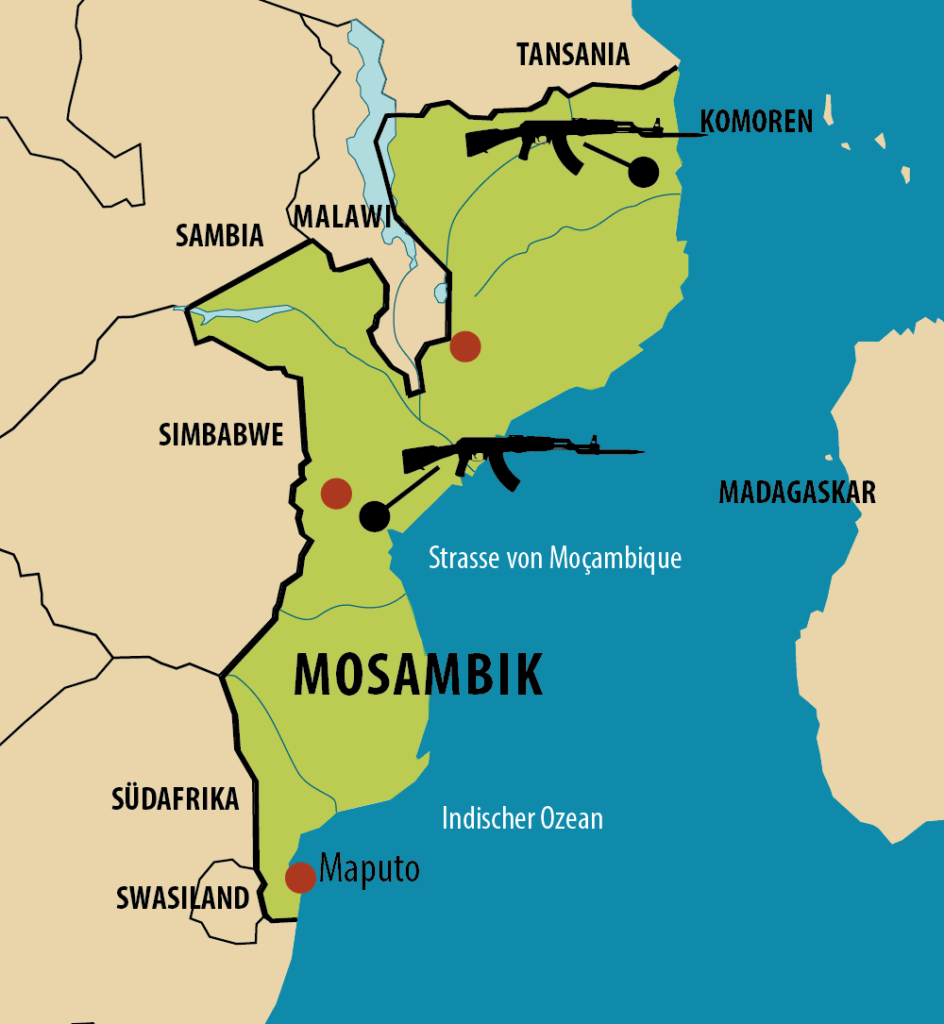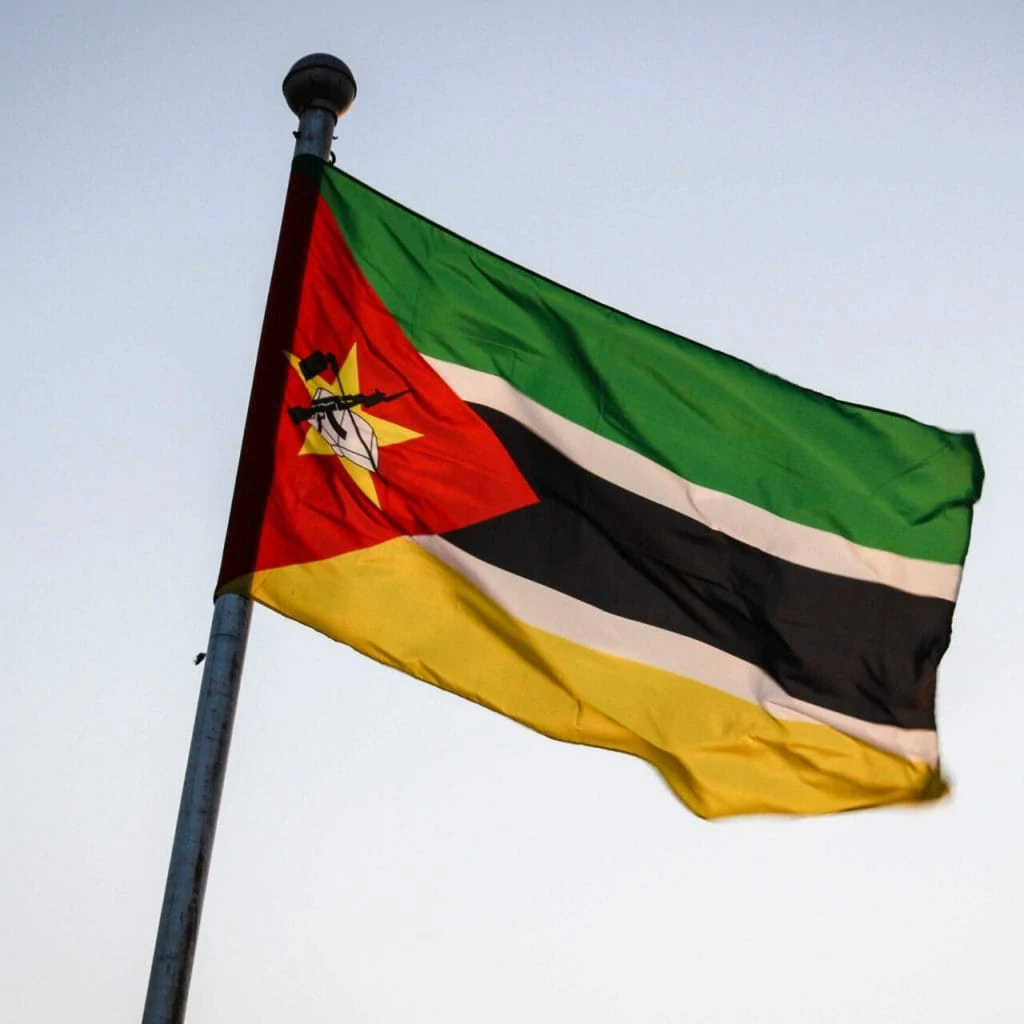In Mozambique, several armed groups are threatening the peace. In the north, Islamist fighters attack innocent people under the flag of the so-called Islamic State (IS). In the centre, a splinter group of the opposition party refuses to sign a peace treaty with the government. Once again, poverty and lack of prospects provide the best breeding ground for violent gangs and their recruiters. International aid is proving difficult and could further aggravate the situation.
Actually, armed conflicts in Mozambique should be a thing of the past. On 1 August 2019, the government and the opposition party Renamo signed a peace treaty. Switzerland helped mediate between the two parties, which had been fighting bloody battles time and again since the 1970s. Between 1977 and 1992 alone, 900,000 people died and 1.7 million had to flee.
With the peace treaty this should be a thing of the past. But the reality in the north and centre of the country leaves little hope for peace. The province of Cabo Delgado on the border with Tanzania has been the target of attacks by Islamist groups for months. The Southern Times reports that they want to establish a Central African caliphate under the flag of the so-called IS. The United Nations already counts more than 1,500 dead and 300,000 people are on the run within Mozambique.
North only of interest with gas deposits
For years the extreme north was of little interest to the Mozambican government. The capital Maputo is 1'700 km away at the southern end of the country. High youth unemployment and lack of prospects make it easy for Islamist recruiters to find supplies for their groups.
The discovery of huge gas deposits in the region has brought large international resource companies into the country. And with them private security companies, such as the notorious Russian Wagner Group. The so-called IS promptly upgraded with new fighters from East African countries, writes the military platform SOFREP. The fact that the corona virus can spread unhindered in areas without state control is likely to further aggravate the situation.
Our partner organisations in Milange, some 500 km from Cabo Delgado, are watching the situation with tension. Not only has the number of attacks increased steadily since the beginning of the year, but they are now occurring further and further south in the province of Nampula.
Our partners are directly affected
Even in the centre of Mozambique, on the corridor between Beira and Chimoio, the situation is sobering despite the peace treaty. There, a group has split from the opposition party and is resisting the agreements. They should actually disarm and integrate themselves into the state police and military. Instead, the group is now attacking civilian buses and trucks under the name Renamo Junta.

For our partner organisations in Chimoio this means spontaneous replanning in everyday life. Especially around the elections in October 2019 they were not able to carry out some activities. The safety of the participants and staff would have been at risk.
Their regular visits to the youth clubs outside the city of Chimoio have to be well planned and always adapted to the security situation. During our project trip in January of this year, the conflict in the centre also directly affected us: For safety reasons, a 200-kilometre journey by car from Chimoio to Beira was turned into a flight lasting several hours with a stopover in Maputo.
No solution in sight yet
The insecure situation has far-reaching consequences for the local people every day. Especially for those who cannot afford the ticket for the flight and are dependent on the bus connection. They have to live with the constant fear of becoming victims of an attack.
It is to be hoped that the government will soon be able to end the two conflicts in the country. Meanwhile, the government has offered the rebels a ceasefire which should make negotiations possible. The rebels have not yet given in. The fight with the so-called IS is a bigger one. The Russian Wagner group seems to have already given up. Maputo is now seeking help from the EU and the Southern African Development Community (SADC). Experts fear that direct intervention by the EU or the USA could lead to an international proxy war against the IS.. There's still time to prevent that.
In the short term, however, there will be no quick and peaceful solution to the conflict in the North. And en the long term, there will only be peace in the country if the poorer sections of the population get a slice of the export of the huge resource deposits and young people in the country are given a real perspective. We are working on this with our partners every day.


